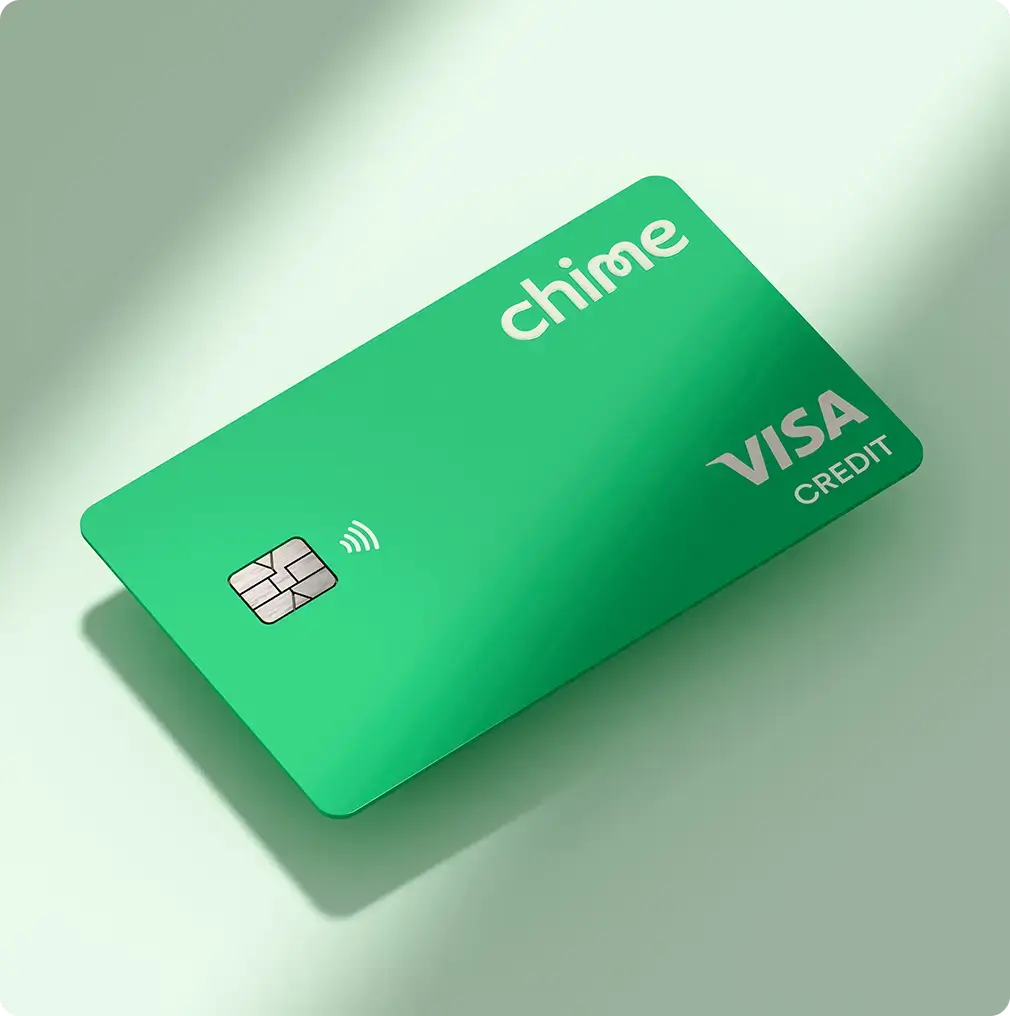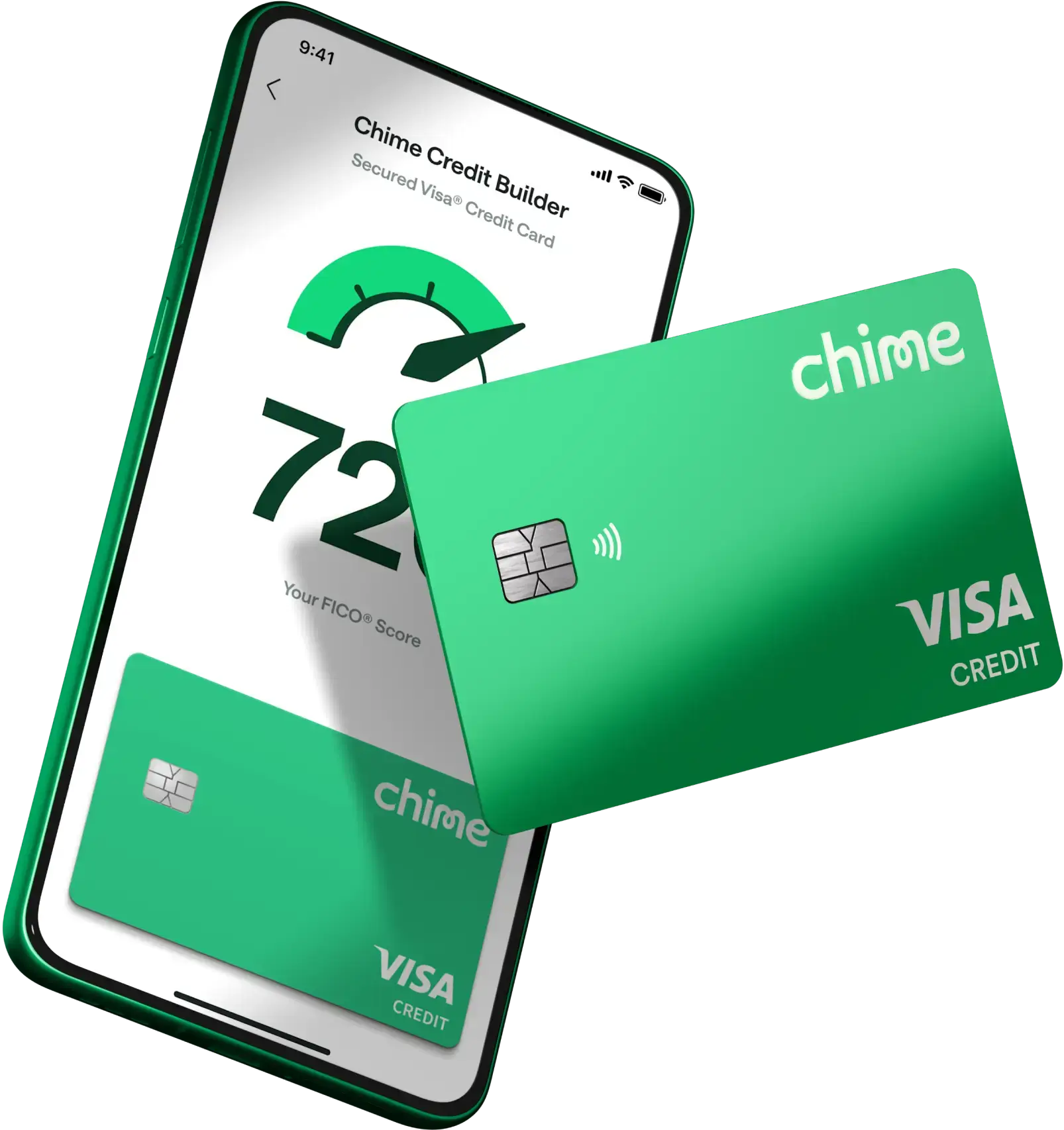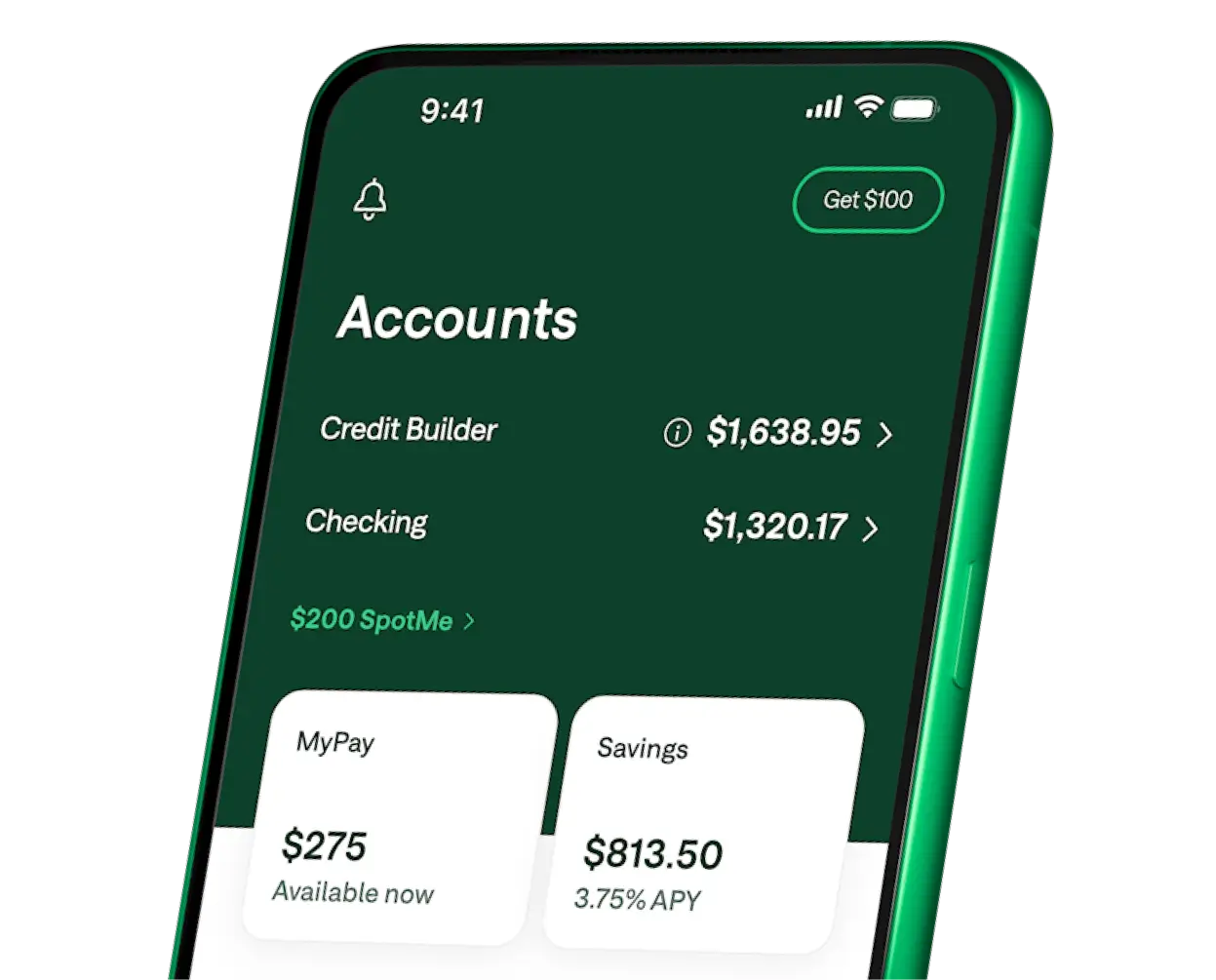The right credit card can make a difference
Chime® Credit Card
- Build credit safely with on-time payments¹
- Cover unexpected expenses
- No credit check to apply
Learn how we collect and use your information by visiting our Privacy Notice


Chime Online Checking Account
Start building credit now.
Opening a new credit card can help you improve your credit scores, but not all credit cards are created equal. Members who open a secured credit card through Chime can experience a 30-point score increase on average² when they make on-time payments.
No annual fees, no interest,³ no worries. That’s the power of a Chime credit card.

Over 1 million
5-star reviews.

Direct deposit and get Chime+ for free.
Unlock even more Chime benefits when youset up a qualifying direct deposit‡.

Don’t just take our word for it.
Hear what other Chime members are saying about their experience with a Chime credit card.
Member testimonials
Real members. Paid testimonials.
What's important to you for a credit card?
FAQs
How does a credit card work?
Credit cards are a form of payment that allow you to make purchases without taking money out of your wallet or bank account at the point of sale. Instead, you borrow money from the credit card issuer and pay it back later, usually with interest. Currently, Chime offers a secured credit card, a type of card that requires cash collateral to help you build credit, as opposed to unsecured credit cards.
Here, we’ve broken down how unsecured credit cards work in a few easy steps:
- You apply for a credit card (usually online) and get approved. Though it varies, approval is often based on your credit history and other financial factors.
- You swipe your credit card for purchases from a merchant (or use your credit card number and details to make online purchases).
- Through a complex payment network, the merchant communicates with the credit card issuer to approve your payment.
- The payment goes through, and you receive the goods or services you’ve paid for with money borrowed from the credit card issuer. Typically, nothing has left your bank account at this point.
- Each month, you must pay back a minimum amount of what you borrowed. Any amount you don’t pay off may accrue interest and can carry over to your balance for the next statement period.
What is APR on a credit card?
APR on a credit card stands for the Annual Percentage Rate. The higher the APR, the more money you’ll pay in interest on your credit card balance. APR represents the cost to borrow money and is typically a yearly rate.
What is a secured credit card?
A secured credit card is a type of card designed for borrowers who have a low credit score or no credit history at all.
Instead, you’ll make a security deposit (often a couple hundred dollars) to serve as collateral on the credit card. You’ll then use the credit card, typically with a low limit equal to your security deposit, and pay it off each month. Regular on-time payments can help improve your credit scores over time – and may eventually help you qualify for an unsecured credit card.
Are credit cards easy to apply for?
In general, credit cards are easy to apply for. You can typically fill out an application online with just a few pieces of information (like your Social Security number and your address). Many credit card issuers can approve you quickly.
Though the credit card application process can be straightforward, getting approved might be another story. If you’re applying for a high-quality credit card, you’ll need an exemplary credit score to match. Otherwise, you risk being denied the credit card – and your credit score will temporarily decrease from the hard credit inquiry.
What type of credit card is best for beginners?
Beginners who don’t have an established credit history may have the best luck qualifying for a secured credit card. These cards are backed by a security deposit and may not require a credit check to qualify. Students who are new to building credit may also be able to open a student credit card, designed for their specific borrowing needs.
What are 7 types of credit cards?
There are many types of credit cards that you may encounter when researching and comparing cards:
- Standard (unsecured) credit cards
- Secured credit cards
- Credit cards with rewards
- Cash back credit cards
- Store credit cards
- Business credit cards
- Travel credit cards
What do you need to apply for a credit card?
To apply for a credit card, you should first ensure your credit score meets the minimum requirements of the credit card issuer. If your credit score is strong enough to qualify, you’ll need just a few pieces of vital information to apply for the credit card:
- Your full legal name
- Your phone number
- Your address (to apply for a credit card in the U.S., you’ll need a U.S. address, not a P.O. Box)
- Your date of birth
- Your Social Security number
- Your gross annual income and housing costs
- Your employment status
Some credit card issuers may require additional details, but in general, the credit card application process is simple and straightforward, with guidance as you go. And you can do it all online!
What type of card gives you the most credit?
To get a credit card with a high credit limit, you typically need an exceptional credit score. FICO® Credit Scores range from 300 to 850; a score of 800 or above lands you in the exceptional category.
Once you’re in this credit score range, you’ll qualify for the best credit card offers available, including cash-back credit cards and travel credit cards – and credit cards with high credit limits.







